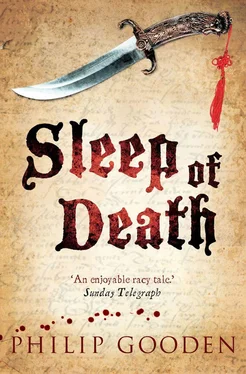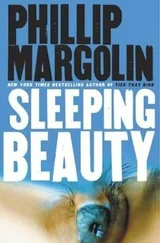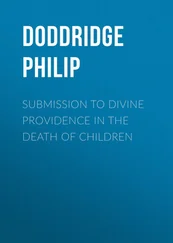Philip Gooden - Sleep of Death
Здесь есть возможность читать онлайн «Philip Gooden - Sleep of Death» весь текст электронной книги совершенно бесплатно (целиком полную версию без сокращений). В некоторых случаях можно слушать аудио, скачать через торрент в формате fb2 и присутствует краткое содержание. Год выпуска: 0101, ISBN: 0101, Издательство: Constable & Robinson, Жанр: Исторический детектив, на английском языке. Описание произведения, (предисловие) а так же отзывы посетителей доступны на портале библиотеки ЛибКат.
- Название:Sleep of Death
- Автор:
- Издательство:Constable & Robinson
- Жанр:
- Год:0101
- ISBN:9781472104311
- Рейтинг книги:5 / 5. Голосов: 1
-
Избранное:Добавить в избранное
- Отзывы:
-
Ваша оценка:
- 100
- 1
- 2
- 3
- 4
- 5
Sleep of Death: краткое содержание, описание и аннотация
Предлагаем к чтению аннотацию, описание, краткое содержание или предисловие (зависит от того, что написал сам автор книги «Sleep of Death»). Если вы не нашли необходимую информацию о книге — напишите в комментариях, мы постараемся отыскать её.
Sleep of Death — читать онлайн бесплатно полную книгу (весь текст) целиком
Ниже представлен текст книги, разбитый по страницам. Система сохранения места последней прочитанной страницы, позволяет с удобством читать онлайн бесплатно книгу «Sleep of Death», без необходимости каждый раз заново искать на чём Вы остановились. Поставьте закладку, и сможете в любой момент перейти на страницу, на которой закончили чтение.
Интервал:
Закладка:
‘Anyway, I don’t know what you’re talking about,’ I said. ‘I’m just a player.’
‘A simple man and so on.’
Somehow he managed to turn everything into a jibe or a sly insult. I determined not to rise to it.
‘If you like. You said just now that Sir Thomas was your uncle?’
‘Yes.’
‘But he’s married to the Lady Alice?’
‘My father is dead. After my father died, my uncle married my mother. This happened quite recently, as you may have been able to tell from his attentive manner towards her in the playhouse box.’
The tapster came across again to take our orders, and one of those natural pauses ensued while the tankards were brought. I took the opportunity of examining William as he sipped at his beer. He was a tall, thin man, about my age or a little older. (Which would put his beautiful mother in at least in her mid-forties, assuming that she had borne him early.) He had an inward-looking, melancholic air about him. His clothes were a fashionable black.
‘You are in mourning for your father?’ I asked.
‘’Tis not alone my inky cloak, good mother,
Nor customary suits of solemn black. .’ he began.
‘. . I have that within which passes show -
These but the trappings and the suits of woe.’ I concluded.
We laughed in recognition.
‘You know the play?’ he said.
‘I was in the play yesterday. Small parts, you understand.’
‘This is for my father in a sense,’ said William, indicating his black clothing, ‘because he did die recently. But I don’t believe I bear my uncle any grudge for marrying my mother, and I don’t despise my mother for choosing another husband, though one can never quite plumb the depths of one’s own mind in matters like these. My uncle is a good and shrewd man, I think. He is certainly a shrewd one. And a lenient one too, as you saw this afternoon when he allowed Adrian the steward to go scot-free. My mother is a woman who knows her own mind. She is also a handsome woman. If she wishes to marry soon after the death of a first husband, what more natural than that she should turn to that man’s brother? They are not unalike, my father and my uncle. No, I don’t brood on my mother’s remarriage. I am not Prince Hamlet.’
But the little flood of words, the most this young man had yet spoken, showed that he had brooded, was still brooding over this very matter. Anyone who eagerly denies something, with a mass of accompanying reasons, concedes the case against him, all unawares. And also William Eliot’s air, his dress, his professed pleasure in speculation, everything about him might have lead one to think that he was modelling himself on that famous character, the Prince of Denmark.
‘And yet. .’ he said.
‘What?’
‘Master Revill, I understand that you have nowhere to lodge at the moment, is that right?’
I was disconcerted. William Eliot had obviously been talking to someone. One of the Chamberlain’s Company?
‘I had a disagreement with my landlady over. . something. She has given me notice.’
‘I’m going to make you a proposition,’ said William. ‘But first I must tell you something that happened a few months ago, if you are willing to listen to a story.’
I nodded but said nothing.
‘A man went into his walled garden one afternoon. He was in the habit of going there to sleep on warm days. He alone possessed the key to the door that opened into this walled garden. It was his retreat, his sanctuary, a place where he could think or rest undisturbed. There was nothing unusual in these afternoon absences. When he did not reappear in the house by nightfall of this same day, however, his wife and their son and the servants began to grow worried. They called from the outer part of the garden, they rattled at the locked door. No response. Eventually one of the servants was sent over the wall on a ladder. What the servant found in the twilight caused the wife to order the door broken down. When the household — by now most of them were assembled — poured though the narrow entrance to the walled garden they found the head of the household dead in his hammock. The body was almost cold. He had apparently lain there since the early afternoon. There were no marks of violence, no signs of foul play. He had died naturally. What does this remind you of?’
‘It’s obvious enough,’ I said.
‘Well?’
‘It’s what happens before the beginning of the play of Hamlet. Hamlet’s father, old Hamlet, dies in his orchard one afternoon. The story’s put around that it was as a result of a snake-bite. But the Ghost tells the Prince that he was poisoned — and that the murderer is now on the throne of Denmark and married to Hamlet’s mother.’
‘I said that Master Shakespeare’s plots were closer to the truth,’ said William. ‘What I’ve just described to you is the manner of my father’s death. Asleep, one afternoon, in his garden, in his house, on the other side of the river, his death apparently a natural one.’
‘Jesus,’ I said. ‘And then to have your mother remarry — and to your uncle. All this really happened, what you’re saying?’
‘It’s easy enough to check it if you don’t believe me. My mother or my uncle or any member of the household will confirm it. There was even a ballad made on the subject of my father’s passing, how death comes for rich and poor alike or some such profundity.’
‘It stretches belief that your family’s history should mimic so exactly the action of a play,’ I said.
‘Yes. It is disturbing to find that nature is so short of material that it is forced to hold up the mirror to art, if I may vary one of the Prince of Denmark’s own observations,’ said William languidly. ‘But consider these things, consider them separately. Then they are less surprising. My father was several years older than my mother. He had not been in the best of health. One might ask, why should he die then and there, one fine spring afternoon in a hammock in his private garden? But, to look at it another way, why shouldn’t he? As good a time as any other. Death is not always the thief who comes in the night.’
‘You sound very, ah, unmoved about this,’ I said.
‘I have thought long and hard about it. I have tried to be dispassionate. Then, I examine the sequel to this. My mother sincerely grieves, I think, at my father’s death. That was no playing, such as Hamlet complains of when he calls his mother Gertrude a hypocrite. My uncle Sir Thomas too showed grief, though in a manly way. He is not a Claudius, surely, full of fine words as he secretly clutches the knife. Each of them, widow and brother, naturally turned to the other for consolation. Consolation soon — very soon — changed to love. Again, what’s exceptional about that? We are told in Leviticus that if brothers dwell together and one of them dies then the widow should not be married outside the family to a stranger.’
‘That is the case when the wife has not produced a son,’ I said. ‘Then the brother should perform the duties of a husband. But in this situation there was at least one son, you.’
William glanced at me in surprise.
‘My father was a parson,’ I said. ‘Whether I wanted to or not, I soaked up Bible learning every day of the week.’
‘There is no great gap between pulpit and stage. That’s why they’re always at each other’s throats.’
I was beginning to warm to this fellow, for all his airs.
‘My father wouldn’t thank you for saying so. Like our City fathers, he held that the playhouse was the root of all abomination.’
‘And so you are drawn to it. Does he know how his son earns a living?’
‘My father is dead. My mother also. The plague-beast struck at Bristol a couple of years ago, and one of its tails or legs swept through our little parish.’
Читать дальшеИнтервал:
Закладка:
Похожие книги на «Sleep of Death»
Представляем Вашему вниманию похожие книги на «Sleep of Death» списком для выбора. Мы отобрали схожую по названию и смыслу литературу в надежде предоставить читателям больше вариантов отыскать новые, интересные, ещё непрочитанные произведения.
Обсуждение, отзывы о книге «Sleep of Death» и просто собственные мнения читателей. Оставьте ваши комментарии, напишите, что Вы думаете о произведении, его смысле или главных героях. Укажите что конкретно понравилось, а что нет, и почему Вы так считаете.












